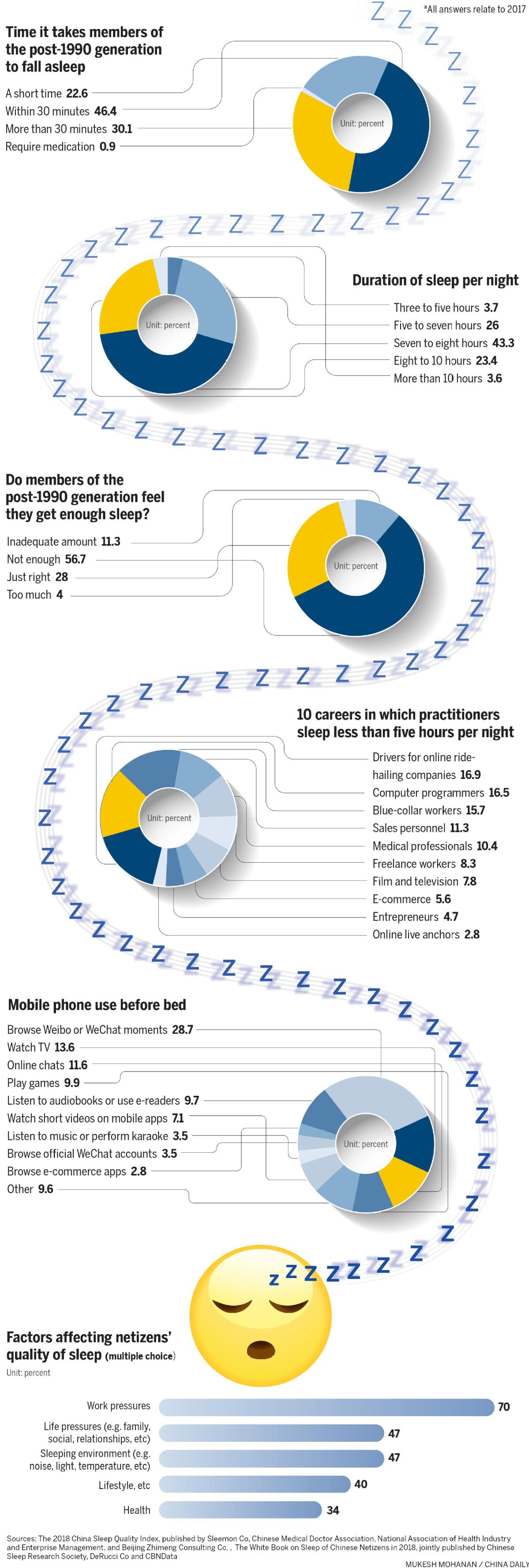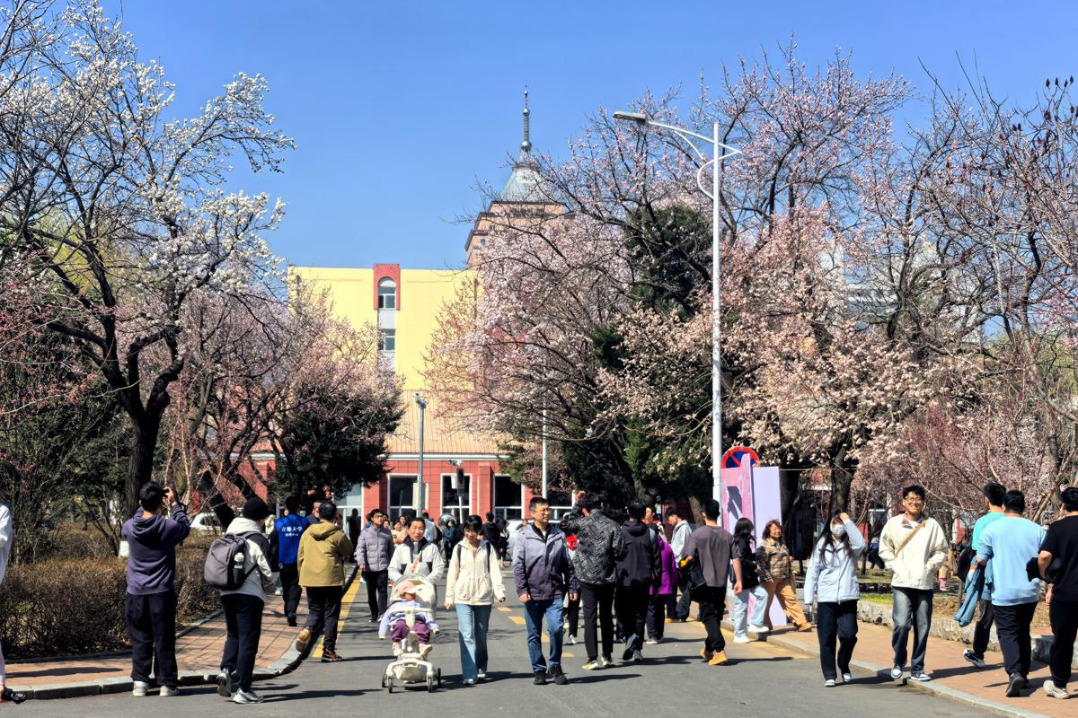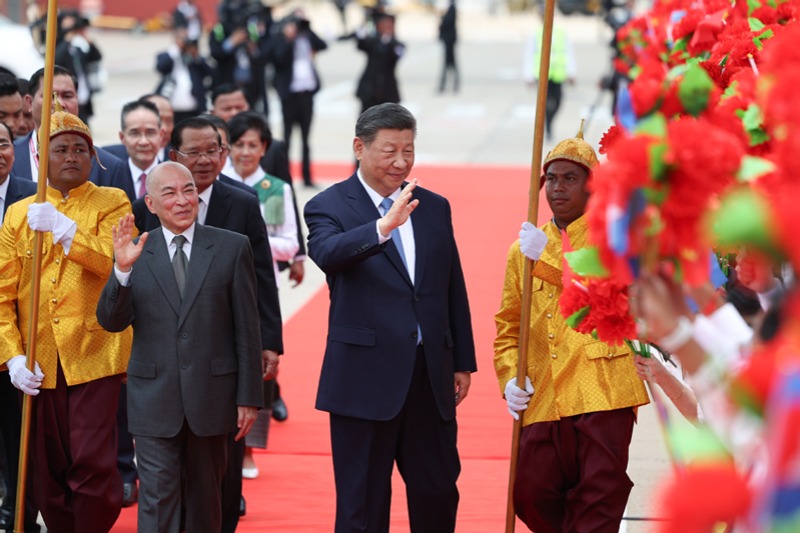Insomnia spreads among young Chinese


The incidence of sleep disorder in the country is 38.2 percent, well above the international level. Yang Zekun reports.
"I kept telling myself to sleep, but it didn't work, my eyes stayed open until 5 am," said Perinur Ewel, a second-year postgraduate student at China Agricultural University in Beijing.
Perinur, who has been having problems sleeping for over six years, often sleeps at 4 am or 5 am. Before that she's wide-awake, even though she can feel her physical tiredness-the result of getting by on five or six hours of sleep a day.
Han Fang, president of the Chinese Sleep Research Society, said: "Our studies have found that more and more youths have sleep problems; many used to have small problems that became severe sleep diseases. We should pay more attention to the trend."
The number of patients with sleep problems has grown considerably in the past decade, according to Guo Xiheng, director of the sleep and respiratory center at Beijing Chaoyang Hospital, Capital Medical University.
Guo, who has studied sleep problems for 36 years, said nearly a third of his patients are younger than 30.
"The ratio was about 10 percent 10 years ago," he said.
A study by the sleep research society found that the incidence of sleep disorder in China is 38.2 percent, well above the international level, which the World Health Organization puts at 27 percent.
The World Association of Sleep Medicine launched an annual campaign in 2008 to lessen the burden of sleep problems on society and raise people's awareness of the issue, with the Friday before the Spring Vernal Equinox designated as World Sleep Day. This year, it was held on March 15, but China organizes its own Sleep Day every March 21.
- Xi congratulates newly elected leaders of Gabon, Ecuador
- Six people drowned in boat accident in Central China
- Zaruhi and Qiangzi: A romance of Silk Road
- China strives to enhance people's work ethics
- Students swap stories at Peking University book fair
- China, GCC hold first forum on peaceful nuclear cooperation





































